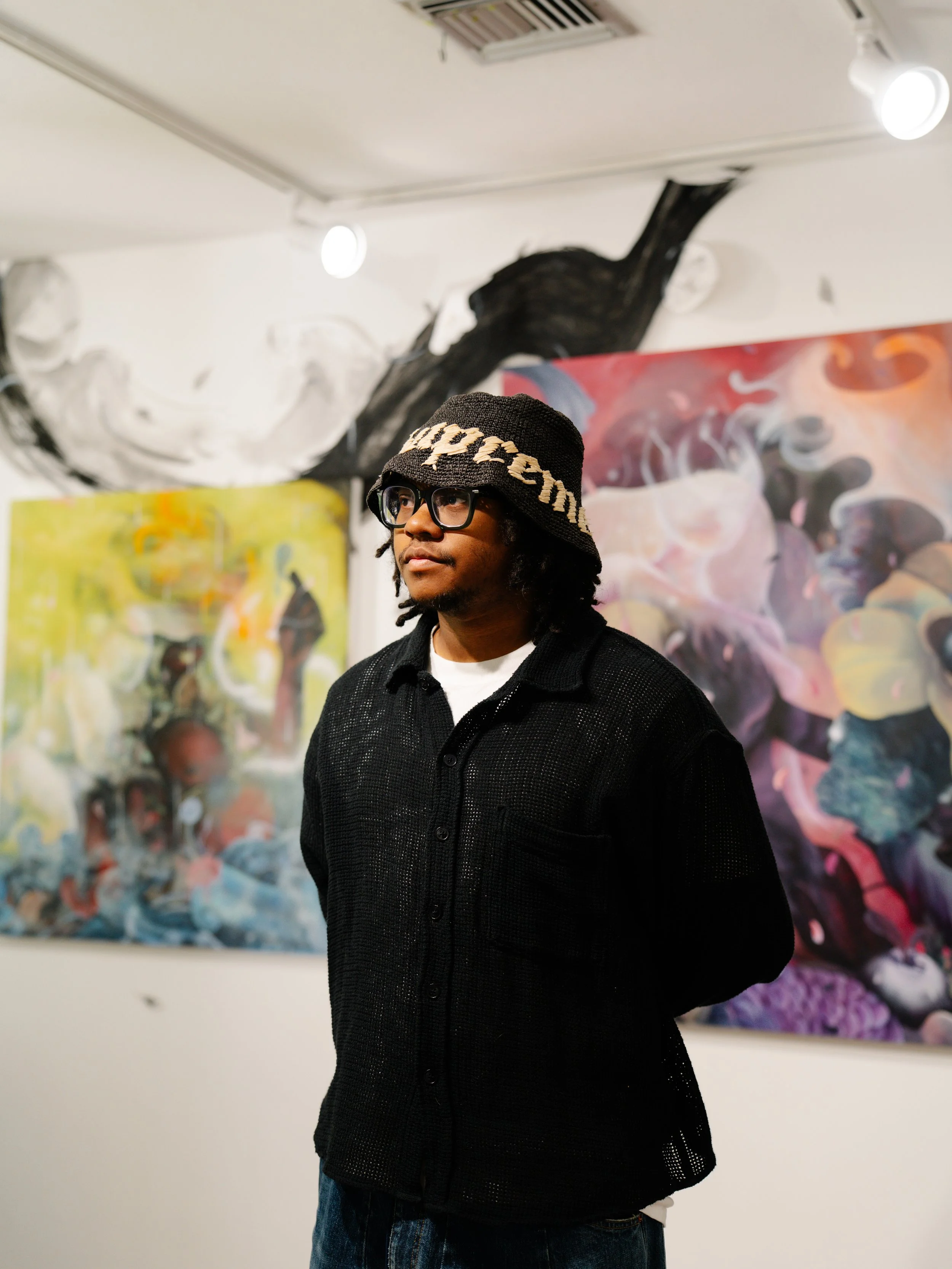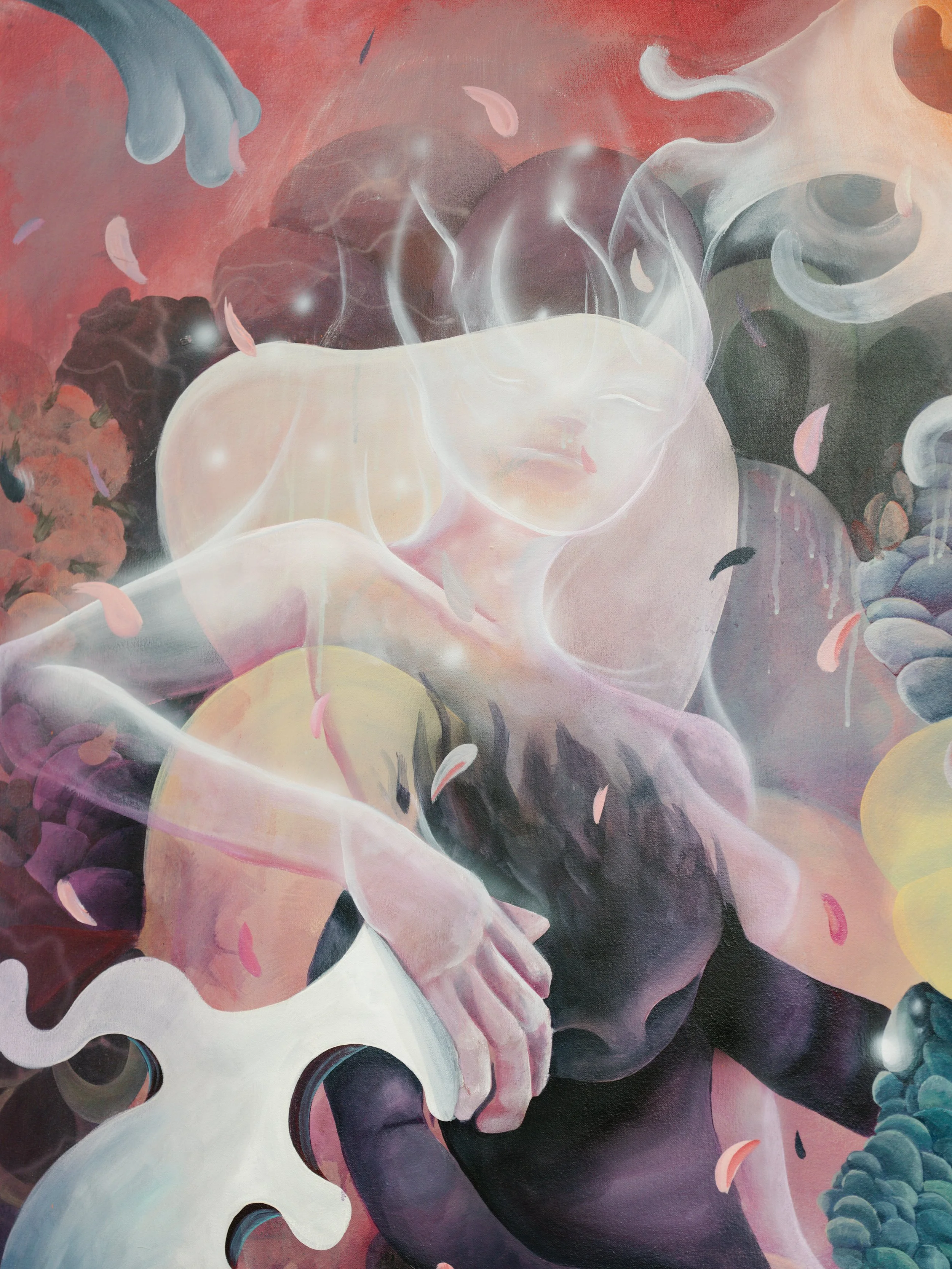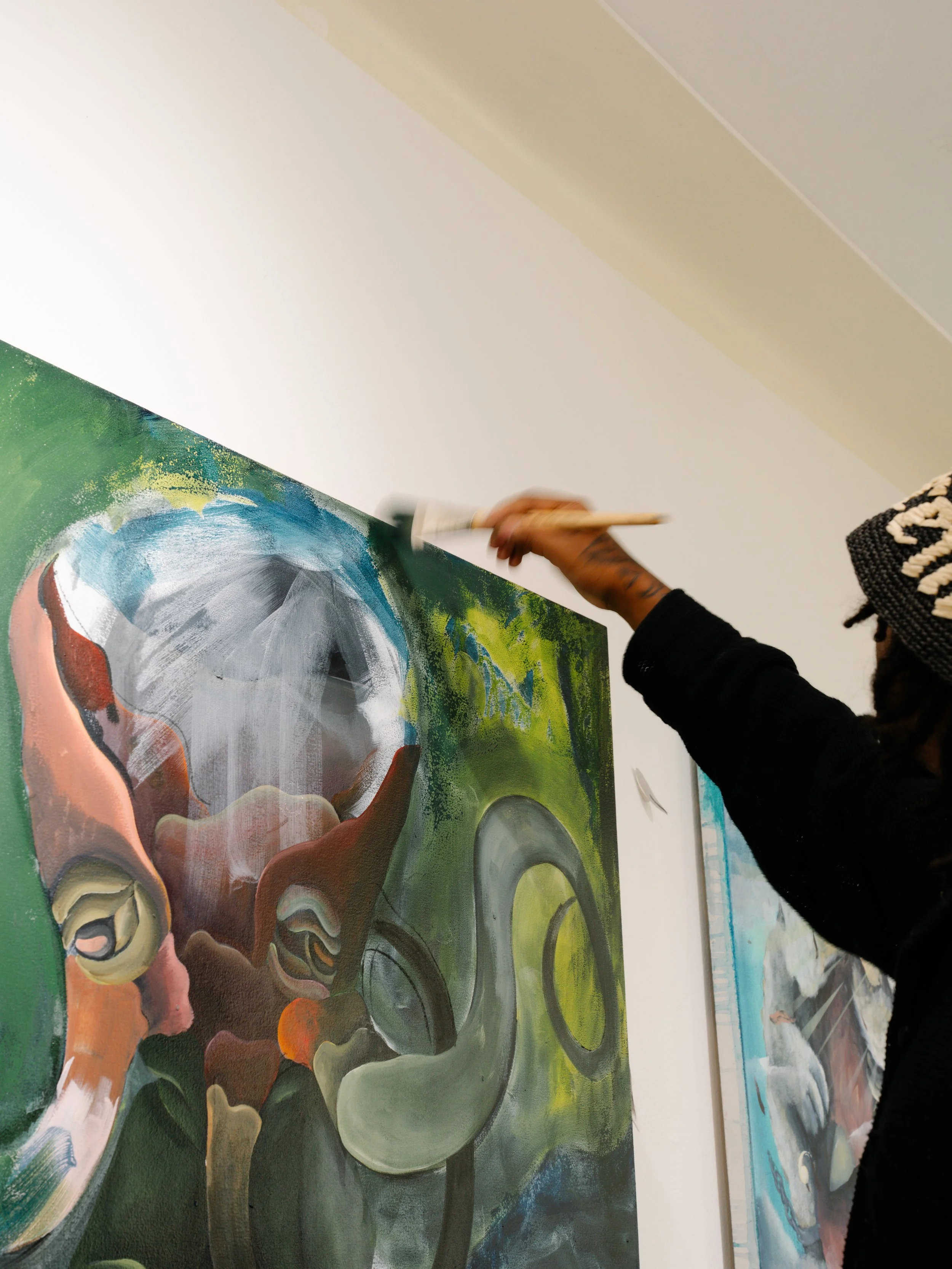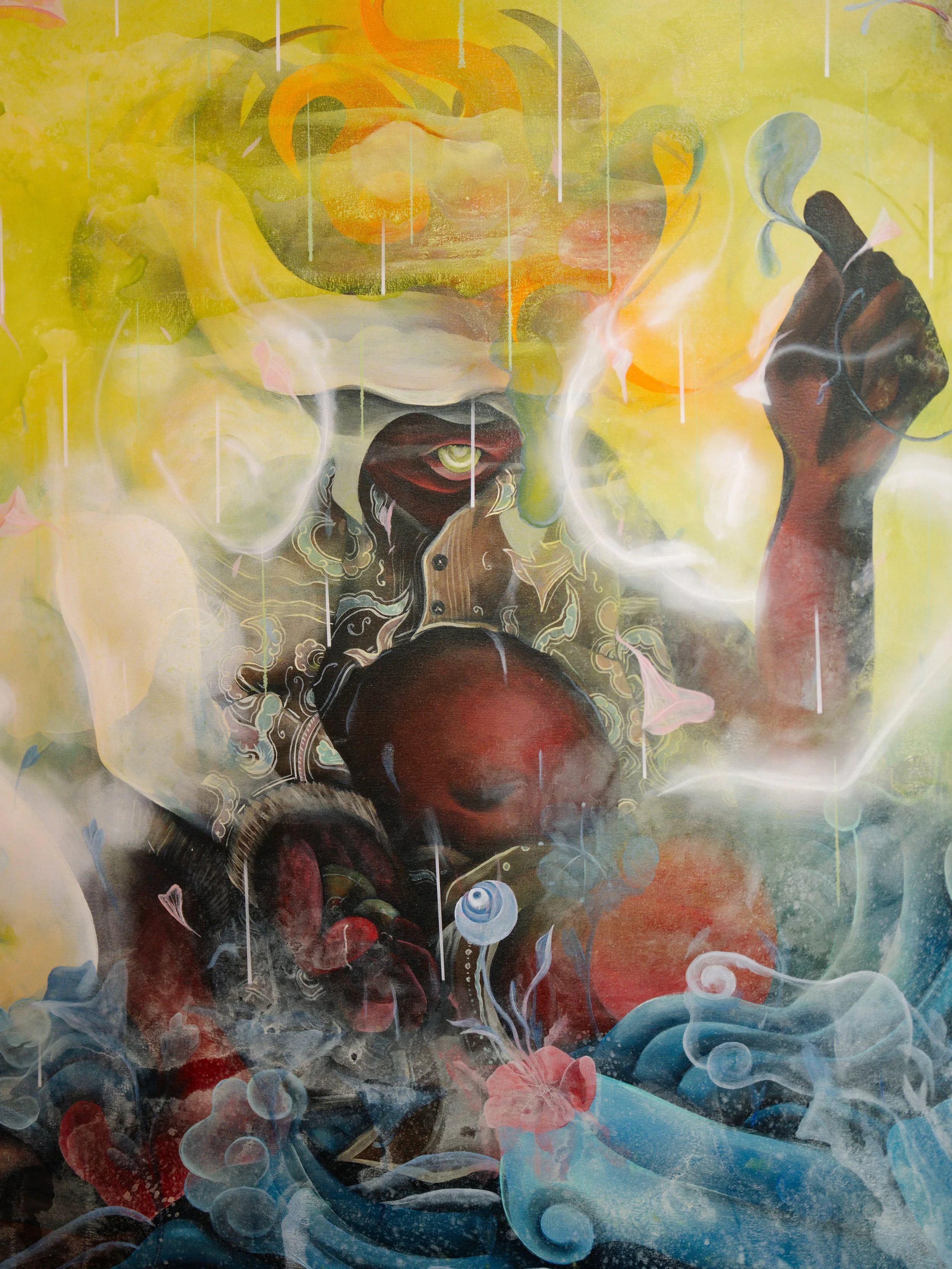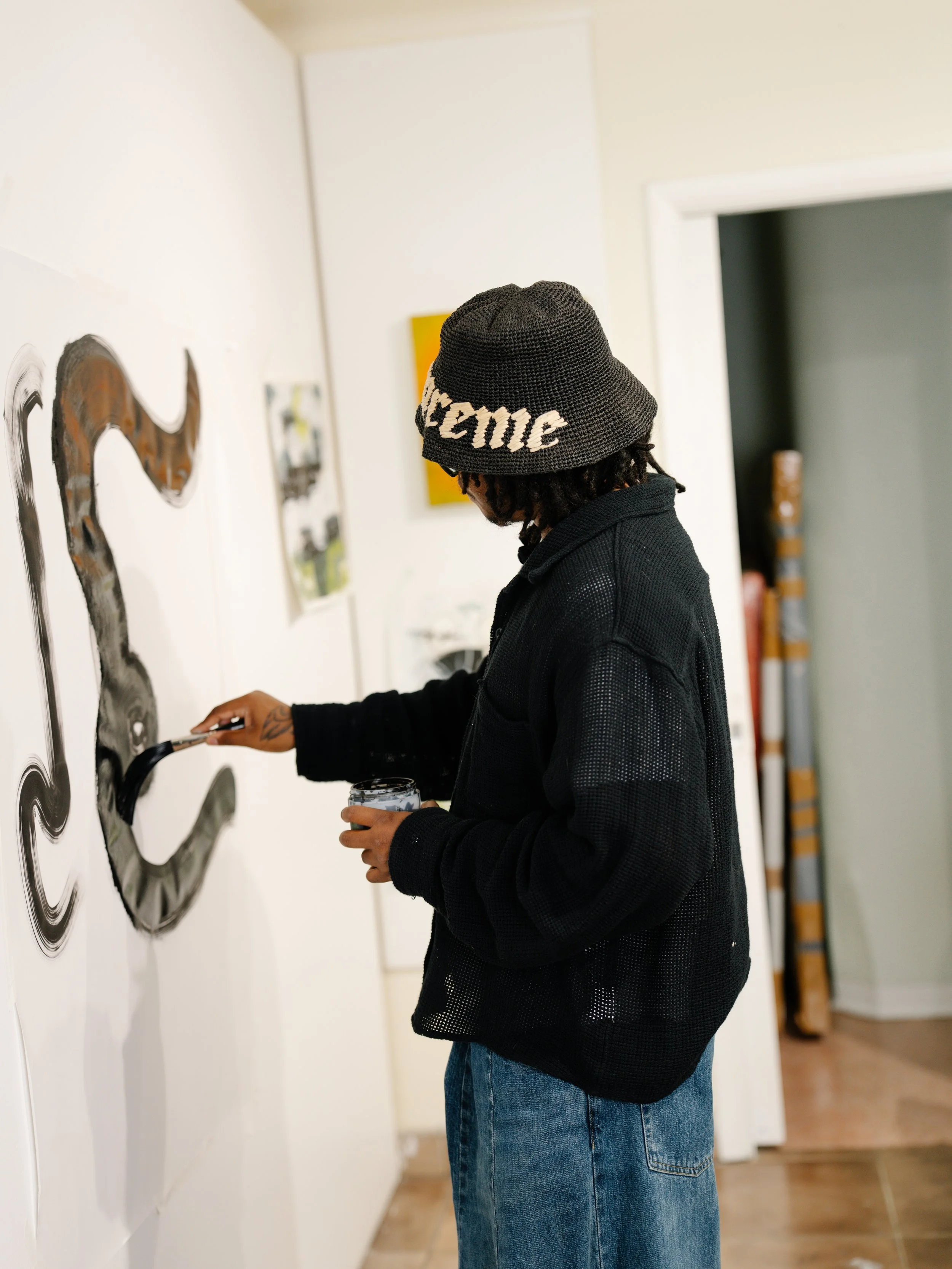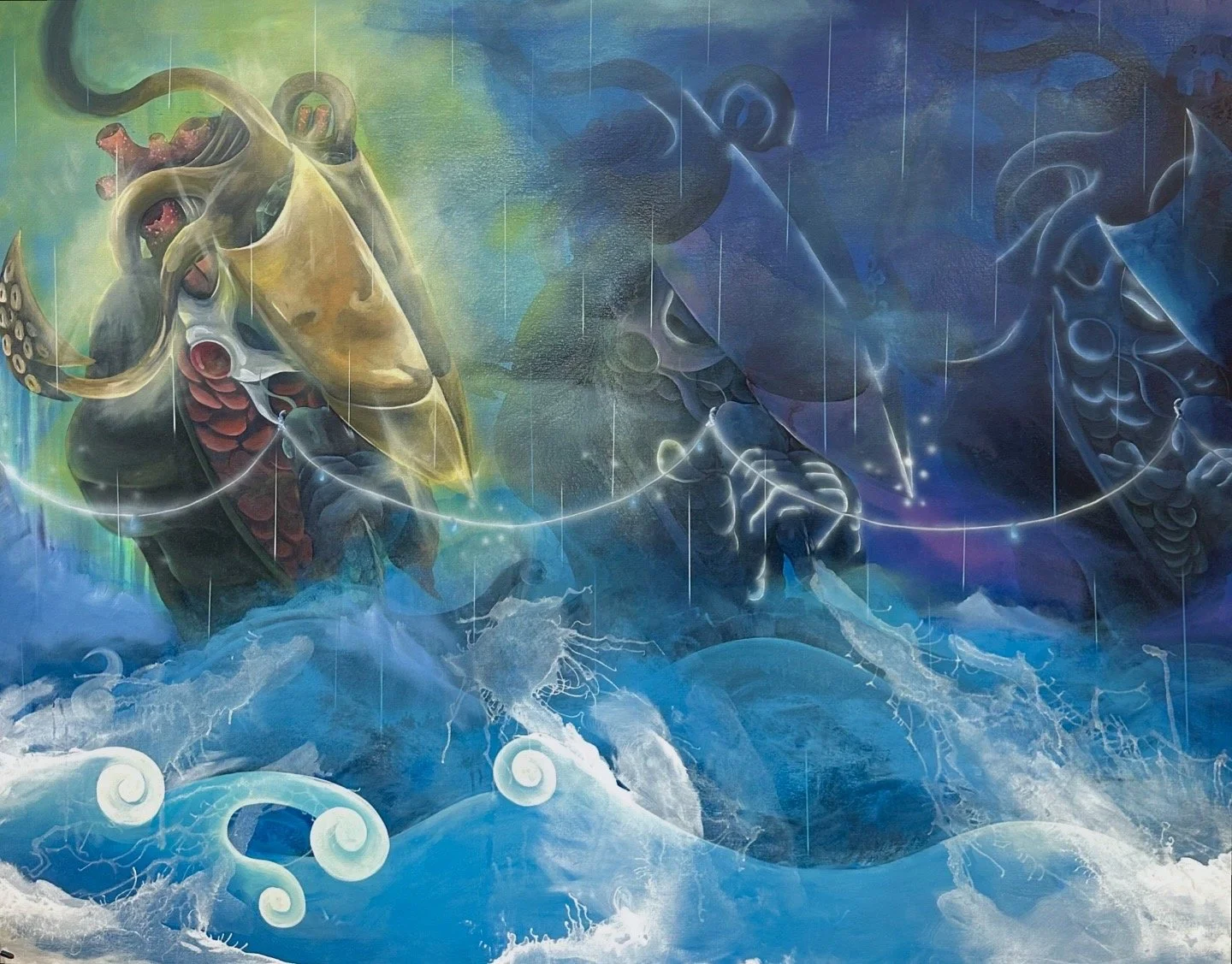August - September 2025
Armani Howard
Film directed by Alexa Caravia for Fountainhead Arts
Armani’s residency was generously sponsored in part by Francie Bishop Good and David Horvitz
For Amani Howard, painting initially served as a therapeutic outlet. It soon became a vehicle that conveyed tender dialogues, speaking to the abstraction of his memories, experiences, and existence. He quotes, "A lot of it [painting] was reclaiming those memories, but also allowing them to exist on their own.” Following the loss of his father as a young child growing up in Chicago, memory work began for him by digesting the stories told by family members recounting memories of his father. These conversations and different layers of memories led him to explore mythology in ways that helped him understand the essence of someone more than their actuality. The idea of existence within multiple planes became the foundation for Howard's practice. Mystical figures in richly pigmented landscapes, surrounded by floral elements, are the hallmark of Howard's paintings. Howard emphasizes that every sketch and finished painting stems from feeling. He channels the many dialogues, experiences, and memories he holds and allows them to take shape in whatever ways they translate to in that time and space that he is creating. Howard also incorporates elements from Buddhist artworks, given that his grandmother was a Buddhist, to create a world where spirits are in control of the landscape and, at times, convey the idea of escapism. He quotes, “In my work, I'm creating something I want to believe in, rather than giving the viewers an answer.” Howard describes his residency experience at Fountainhead as allowing him to breathe again, to create his artwork without the constraints of work and responsibilities back home. He quotes, "Being here has made me reconnect with time and relinquish more control." Howard highlights how access to water, nature, and vibrancy, as well as the diverse and layered communities in Miami, have shaped ideas for new work.
Words by Lauryn Lawrence
